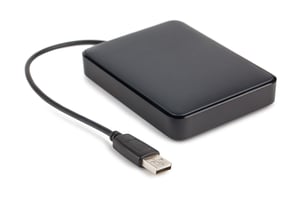If you are a newer or small business, chances are you have limited IT support in-house. Your network security may consist of making sure your anti-virus software is updated, and your equipment is more than likely being serviced by a break-fix shop or Best Buy’sTM Geek Squad. Let’s face it; you don’t have the budget to splurge on an in-house IT person or a managed IT services company.
That doesn’t mean you are immune to the same issues that other companies have, but fortunately, I’m here to offer you some simple computer fixes on a budget to better serve your IT needs in-house. We get asked by customers all the time about simple ways to fix IT problem that can help avoid a service call, so here are some superior solutions for your in-house IT support.
Restart Your Computer
Let’s begin with an easy (maybe obvious) one. Restarting your computer can solve many problems. It seems silly, but sometimes your computer just needs a break, and a restart will often free up memory and rerun other processes.
Malware Scan
If you are reading this article, I am assuming that you have some form of anti-virus protection. If you don’t, that is a basic tool you can’t afford to be without if your company is connected to the internet. If you find that your computer is running extra slow or your programs are crashing, consider running your anti-virus and/or spyware software. Either one of these forms of malware can slow down your computer. If you don't have the ability to run a spyware scan, you can easily download free programs like Ad-Aware to your computer to assist.
Defrag Your Computer
Once you have determined you don't have any malware on your computer and it’s still running slow, defragging your computer may be your next step. Your computer write’s data to its hard drive in groups that are ordered sequentially. Fragmentation occurs when those files get split between groups that are far away from each other on the spinning plates inside your hard drive. Defragging your computer places data groups back in sequential order so your drive head doesn’t have to travel as far to read individual files.
Extra Tip: You do not need to defrag your computer if you use a solid-state drive (SSD) which replaces the traditional hard drive. Solid-state drives do not require defragging because there are no spinning plates inside your computer.
 Utilize an External Hard Drive
Utilize an External Hard Drive
Whether it is your personal computer or company computer, a SSD or a traditional hard drive, an external hard drive is needed to back-up your data. The biggest kiss of death to a young company is losing its data.
External hard drives are easily portable, so you do not have to take up precious space on your computer and slow it down. In addition, storing sensitive data externally is always a wise decision, and if you do not have a company who can do your data back-up for you, this is one of your better options.
Extra Tip: If you can spring for a cloud-based data back-up service, I would. Your company data is its most important asset. Hackers are after your data, so any way you can keep it out of their reach, the better.
Reinstall a Troubled Program
Just like your entire computer, software needs a reboot from time to time, and malfunctioning programs can make your entire computer have issues. Unlike a previous tip, you must do more than simply restart the program. Completely uninstall the software and then reinstall it for full effectiveness.
Extra Tip: If you are having problems with your software crashing, double check the specifications required to run the software. If your computer is under the program’s specifications and you need that software for business, assess the cost difference of upgrading your existing equipment (if you are a PC user) to purchasing a new computer. READ: Why Do Some IT Providers Not Support Mac?
Clear Your Cache or Cookies 
Your computer browser uses cache (pronounced “cash”) or cookies (not the edible kind) to save recently visited websites and data to make your browsing experience faster. As a result, this will take up some of your computer’s memory and can ultimately slow down its performance, and in some cases, prevent pages from opening.
You can fix this by going to the option menu of your browser and click the “history” button. From there, you will be given options on what you would like to manage. If you don’t want to continually do this, you can choose to keep your computer from automatically downloading cookies, but know that some webpages require it to gain access.
Other Solutions
There are certainly more IT solutions to take advantage of than what is listed above. When it comes to security, without a company or team of in-house IT specialists, you are rolling the dice on the chance of a cyber-attack.
Still, if you’re vigilant about keeping your employees educated on threats (READ: Phishing Tips), you can give your business a fighting chance in the wild west of the internet. The government released a “best practices” list for security, and although technology is constantly evolving, many of them are still relevant today.
Want to Learn More?
- Cyber Security Solutions: Best Practices for Business
- How Much Do Managed IT Services Cost?
- Top Managed Services Companies in Atlanta 2018
Posted by Erica Kastner

Erica Kastner is a lead Marketing Specialist at Standard Office Systems as well as a University of Georgia graduate. She aims to use her passion for problem-solving to help businesses understand how to better leverage their network infrastructure.

